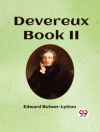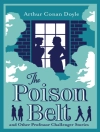Mary Cholmondeley’s ‘Prisoners: Fast Bound In Misery And Iron’ is a compelling novel that delves into the themes of societal constraints, personal freedoms, and the struggle for autonomy. Written in a style reminiscent of late 19th-century English literature, Cholmondeley skillfully weaves a narrative that explores the psychological effects of being confined by both external circumstances and internal demons. The vivid descriptions and introspective characterizations make this novel a thought-provoking read for those interested in Victorian-era literature and social commentary.
A propos de l’auteur
Mary Cholmondeley (1859-1925) was an English novelist who emerged as a distinctive voice during the late Victorian and Edwardian periods. Her literary style often involved incisive social commentary, a characteristic which can be observed in her critically acclaimed novel, ‘Prisoners: Fast Bound In Misery And Iron’. Born in Hodnet, Shropshire, Cholmondeley grew up in an environment that valued education, which allowed her multifaceted talent to flourish despite the limited opportunities for women writers at the time. A prolific author, she explored themes of gender, morality, and social constraints, often using irony and wit to critique the societal expectations placed upon women. Cholmondeley’s contribution to literature has been celebrated for its pioneering depiction of female independence and psychological depth. Her works remain a valuable window into the lives and struggles of women at the turn of the 20th century, and they continue to be studied for their narrative techniques and cultural insights. Cholmondeley’s ‘Prisoners’ is a testament to her literary acumen, offering a poignant and enduring exploration of human resilience in the face of adversity.












